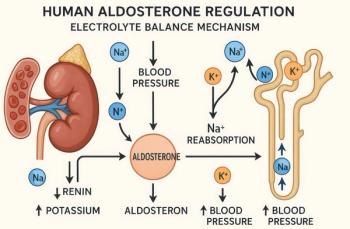
A Carvedilol Revolution: Hypertension to Heart Failure and Beyond
It appears that the attractiveness of beta-blockers is waning for patients with heart failure and also for those with acute MI. Carvedilol is becoming a preferred agent.
I have previously contrasted the downsides of traditional beta-blockers (atenolol, for example) versus the upsides of carvedilol (a beta-blocker “plus”) specifically in the context of hypertension,1,2 and not in the setting of other indications for beta-blockers (heart failure, for example).
That message needs to be expanded in early 2013 to include that “other” issue . . . the use of traditional beta-blockers versus carvedilol in the setting of systolic heart failure and acute myocardial infarction (MI).
DiNicolantonio and coworkers3 addressed whether carvedilol’s extra effects-those in addition to beta blockade (alpha blockade, antioxidant activity, and so-called pleiotropic effects)-exert benefits on cardiovascular morbidity or mortality in systolic dysfunction as well as in acute MI. Their design for study was a systematic review and meta-analysis. The array of beta-blockers included atenolol, bisoprolol, metoprolol, and nebivolol versus carvedilol. There were 8 trials for heart failure with a total 4563 patients.
Compared with the other beta-blockers, carvedilol significantly decreased all-cause mortality in heart failure (risk ratio = 0.85; 95% confidence interval [CI], 0.78-0.93; P = .0006). In 3 trials of patients with acute MI with a total of 644 persons, carvedilol decreased all-cause mortality by 45%, with a fixed effects model risk ratio of 0.55 (CI, 0.26-1.12; P = .10).
The authors commented, “Although a large, randomized, multicenter trial is required to confirm the results of this meta-analysis in patients with acute MI, COMET has confirmed carvedilol’s efficacy over metoprolol in patients with systolic heart failure. . . . Thus, clearly for patients with systolic heart failure, carvedilol should be considered the beta-blocker of first choice.”4
In an effort to answer why there are differences between carvedilol and other beta-blockers, they observed, “Improvements in ejection fraction, symptomatic functional class, stroke volume, stroke work, cardiac output, insulin sensitivity, and adrenergic activity with carvedilol, along with a potential increase in the risk of death with beta 1 selective beta-blockers if strict compliance is not followed, all may contribute to overall morbidity and mortality benefits noted with carvedilol . . .”4
Finally, consistent with rising concerns about atenolol,1 they cautioned, “The fact that atenolol continues to be one of the most widely prescribed beta-blockers (presumably because of habit) is indefensible from a scientific perspective.”4
Earlier, beta-blockers were losing attractiveness in the treatment of uncomplicated hypertension (in individuals who did not also have heart failure or coronary disease). It appears their attractiveness is waning for patients with heart failure and also for those with acute MI. Carvedilol is becoming a preferred agent.
References
1. Rutecki G, Wright B. The great beta-blocker debate: the pros and cons. December 11, 2012.
2. Rutecki GW. Beta-blockers for hypertensives without other comorbidities: going, going . . . gone? December 13, 2011.
3. DiNicolantonio JJ, Lavie CJ, Fares H, et al. Meta-analysis of carvedilol versus beta 1 selective beta-blockers (atenolol, bisoprolol, metoprolol, and nebivolol).
4. Neale T.
Newsletter
Enhance your clinical practice with the Patient Care newsletter, offering the latest evidence-based guidelines, diagnostic insights, and treatment strategies for primary care physicians.

































































































































